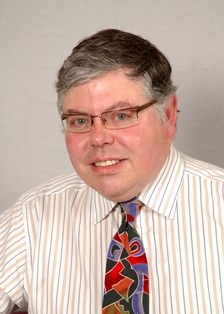Pitfalls in the Terminology of Sacrifice

Dr Tom O’Loughlin
Zoom: Thursday Nov 3rd 2022 at 8.00 PM
According to the Catechism of the Catholic Church the sacrament of the Mass, the Eucharist, is called ‘the Holy Sacrifice because it makes present the one sacrifice of Christ the Saviour and includes the Church’s offering’. (1330)
In September 2022 Archbishop Eamon Martin asked Irish Catholics to think of making ‘personal sacrifices in answer to the cry of the Earth’.
And yet Christian ideas of sacrifice have been blamed by some historians for much of the violence of history, including the Crusades, the expansion of European imperialism and colonialism from c.1450, and the bloodletting of World War I.
So how are we to understand Christian sacrifice today, faced with 21st century challenges?
In examining aspects of the history of the idea of sacrifice, Dr Tom O’Loughlin, emeritus professor of historical theology at Nottingham University, will deal with “some of the pitfalls in the way we use the terminology of sacrifice”.
The Zoom link for this talk – Thursday Nov 3rd at 8.00 PM
https://us02web.zoom.us/j/9924186865?pwd=ZjZpWHpkT1lBdElyTHc3T0N4SXgwUT09
Meeting ID: 992 418 6865
Passcode: 123456
‘Sacrifice‘ is just one of a number of terms and concepts that can raise issues for the forming of an adult Christian faith. We are hoping to follow this talk with others on similar familiar but problematic terms. Suggestions for those will be welcome, at info@acireland.ie .

I would like to submit a comment on the teaching of religion.
I have for many years been troubled by the fact that most young people leave their religion behind when they have made their confirmation.
It is clearly the fact that the religious education has failed to give them a firm believe in God.
They are learning all about evolution.The fact that evolution is part of God’s creation is not being incorporated into religious instructions. God would never have made a world which would just stand still, or give man a brain that would not try to develop and discover.
He also gave us free will which unfortunately we use for our earthly gratification.
The prophets he sent were all killed for lack of belief.
So he sent his only son whom they also killed and he raised him from the dead to prove beyond all doubt his existence.
Many of the brightest minds over the past two thousand years have tried and failed to disprove the resurrection.
These are facts that children need to be taught so that they understand and relate to them in their lives.
Dear friends, l missed the talk last night and l wonder if it was recorded and available to watch. Dr Tom O’Loughlin is magnificent and l was very sorry to be unable to attend the zoom last night. I am a member of WACI and we have our monthly meeting last night. Regards. Nieves
Yes, Nieves – that talk was recorded. We will make it available as soon as our technical resources allow.
I am sure you are right, Sean, about the central importance of belief in the Resurrection to the passing on of faith, but surely that belief depends upon the grace of the Holy Spirit just as much as upon instruction?
While science so far tends to support scepticism re the Resurrection, it also faces problems of comprehension of the nature of matter itself. Teilhard de Chardin was sure of the importance of the Incarnation in the story of evolution, and just now the church itself is facing its own evolutionary challenge. All of these things are surely connected. We are all going somewhere, and prayer calms all fear.
All of us are needed, and the Trinity are guiding starship Earth. Even the trials of the moment help to make us wiser, by undermining egotism and selfishness. We all need one another.